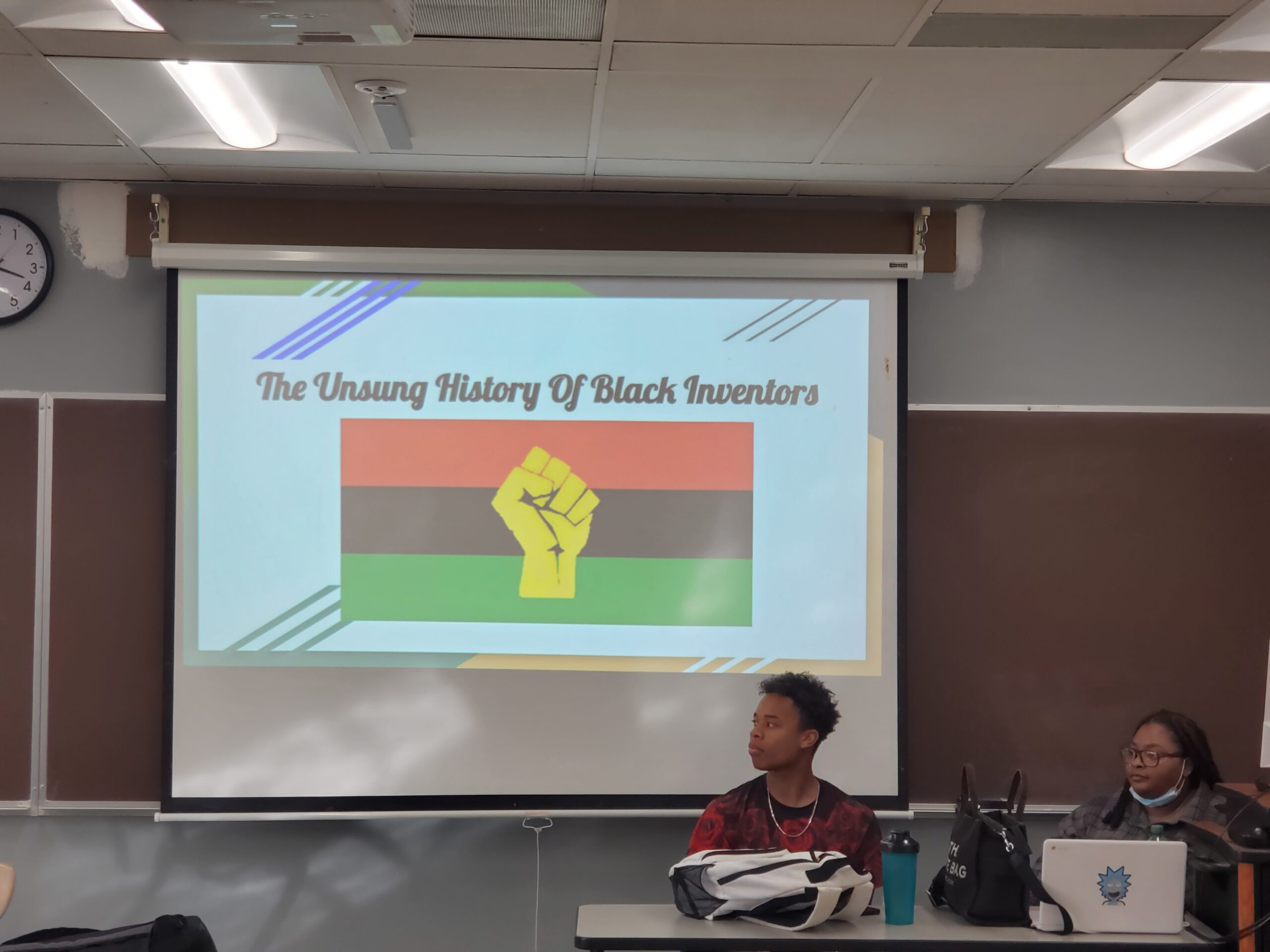The BSU hosted “The Unsung History of Black Inventors” seminar, educating the DH community on inventors that often go historically forgotten. Photo by Joseph Sanker.
By Joseph Sanker Staff Reporter
During an overcast Thursday afternoon on Feb. 16, a group of Black California State University, Dominguez Hills students slowly filtered into a room playing the song “Computer Love” by Elliot Trent on the second floor of the Social and Behavioral Sciences building. Upon entering the room, Tierra Hall, CSUDH’s Black Student Union’s “ourstorian,” which is a combination of the words “our” and “historian” meaning a researcher or writer of chronological records of events records attendees’ names via phone.
As the room fills up the BSU external vice president, Dorhean Gaffney, quiets down the excess noise by clapping his hands in a rhythmic fashion and saying “Black People!” to which the crowd of students responds by mimicking Gaffney, which quiets down the miscellaneous chatter. The BSU’s “The Unsung History of Black Inventors” seminar is about to begin.
After the BSU members introduce themselves, Gaffney begins by asking the students which Black inventors they already know about. Besides George Washington Carver, the Black inventors are not identified by name but just by their inventions, such as Madam CJ Walker being the “lady who invented the hot comb.” Gaffney begins the powerpoint presentation which discussed various Black historical figures and their innovations that impacted history. People such as Madam CJ Walker, Marry Kenner, Lonnie Johnson, George Washington Carver and many more were discussed.
“We have people who are curious about learning about Black inventors and what our people have done in history,” Gaffney said. “I think it’s extremely important that we are educated about what differences we made in our past and for the country and honoring that in today’s world.”
Computer tech major and sophomore Nathan Brown, who attended the seminar described it as “inspiring” with “new information” that was “cool.”
The goal of the educational meeting was just that – to inspire, according to BSU president Terrie Kennon.
“I hope that people took away that they have the abilities to do everything that the Black Americans in the past have done and more,” Kennon said. “I also hope that people take away the inconsistencies of the United States government in regards to how it treats Black Americans, African Americans and people of African descent.”
After the presentation and the pop quiz to follow, Kennon walks to the front of the classroom and addresses the attendees with what she hopes they take away from this meeting.
“Things that exist here, from government practices to the way we walk to the way we talk (are) things that derived from Black Americans, African Americans, people of African descent and we will never know those people’s names because they paid that price…their intelligence was stripped from them and taken credit by a non-Black person,” Kennon said. “So I do want (you all) leaving this space knowing that though this is a list and though there are lists on Google and stuff like that, we will never know the names of the people who deserve to be known.”
Although paying homage to the past is an important gesture, Gaffney hopes that educational meetings like these will be the starting point for something much greater.
“We start off small, this is a start and it was a beautiful start but I can see this expanding on a level of a huge following and huge attendance,” Gaffney said. “As I said at the end of the event we do these things, we talk about these things so that we may honor, but also build our own blueprint and pave our own way because we can only pay homage so much before we decide, ‘what more can we do?’”

